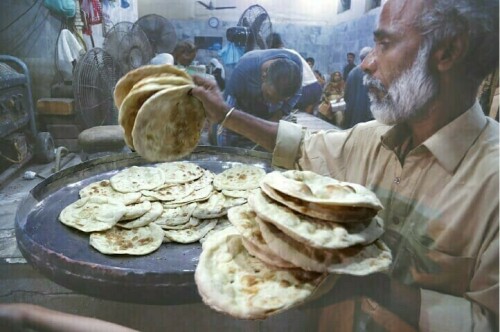ISLAMABAD: Special Assistant to the Prime Minister on Climate Change Malik Amin Aslam on Sunday urged producers of plastics to play their part in managing the menace of plastic waste in a sustainable manner as it was playing havoc with the environment and public health.
Speaking at a National Consultative Policy Dialogue on Plastic Waste Management, Mr Aslam said the incumbent government took several policy and legal measures under Prime Minister Imran Khan’s vision for Clean Green Pakistan and sustainable consumption and production initiatives for achieving environmentally-sound sustainable development.
“Yet, these efforts for sustainable plastic waste management were unlikely to achieve any desired results until various stakeholders - involved in manufacturing, sale and use of plastic materials played their parts in plastic waste management,” PM’s aide Malik Amin Aslam told participants from various national and international organisations involved in plastic manufacturing, use and plastic packaging of various products.
Organised jointly by the Ministry of Climate Change and the Pakistan Collect and Recycle (CoRe) Alliance, the day-long stakeholder engagement event was aimed to discuss and frame responses to shared challenge of packaging waste and collection mechanism, strengthen collective action for sustainable collection and disposal of plastic waste in a scientific and environmental-friendly way.
Participants told around 70pc of plastic waste left unmanaged
He highlighted that largescale plastic waste, which accounted for significant share in overall municipal waste, was generated in the country as a result of use of various products of beverage companies. He urged firms to show responsibility to retrieve their plastic waste and recycle it.
The PM’s aide also recalled that there had been enhanced engagements with companies in the last several weeks, which were selling products in plastic bags.
This was done to ensure their plastic waste was also collected and recycled properly as part of the government’s measures for tackling the soaring quantity of municipal waste and the problem of choking of drains.
Participants learnt that some of the firms had pledged to introduce technology measures for managing and recycling plastic waste generated as a result of the consumption of their products in plastic materials.
This was particularly necessary when plastic consumption in Pakistan was on the rise with 15pc annual growth, most of which ended in landfills, unmanaged dumps or strewn about land and water bodies across the country.
The country’s total annual plastic waste generation in 2020 stood at around 3.9 million tonnes, which was expected to increase to 6.12 million tonnes per annum by 2050.
Participants were informed that around 70pc of this plastic waste (2.6 million tonnes) was left unmanaged/mismanaged and was generally left stockpiled in dump sites, clogging drains or degrading the fertile lands.
Speakers drew attention to various studies that an estimated 1.3 million tonnes/annum of the plastic could be recycled with the present given facilities and capacity available in the country.
Malik Amin explained that around 30 million tonnes of municipal waste was generated across the country.
“Though plastic waste in the municipal waste stream presently accounts for 10pc to 14pc but share of plastic waste in the overall municipal waste is rapidly increasing due to growing generation of plastic waste on the heels of the galloping population of the country,” Malik Amin Aslam said.
It was shocking to note that over 70pc of the plastic waste generated in the country was not recycled and joined municipal waste stream; whereas around 25-30pc of the plastic waste was managed by the informal recycling sector involving housewives, scavengers/itinerant buyers, scrap dealers and small crushing units, the special assistant said while referring to official studies.
Participants learnt of the ban on single-use plastic bags which was being implemented in full swing across the territory of the capital city from March 1. Stakeholders involved in manufacturing, selling and use of plastics were being approached to manage and recycle plastic waste as a part of the incumbent government’s efforts for environmental conservation and protection.
Published in Dawn, February 22nd, 2021














































Dear visitor, the comments section is undergoing an overhaul and will return soon.